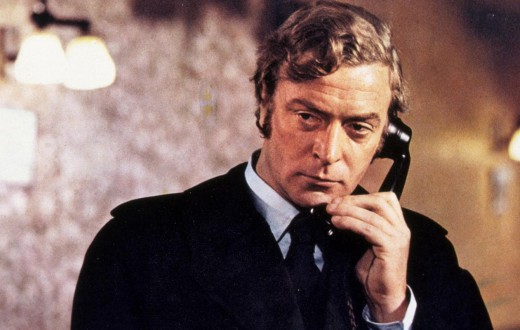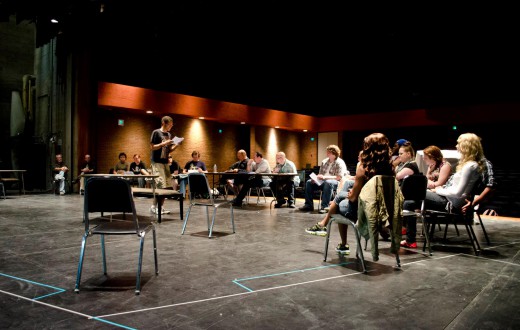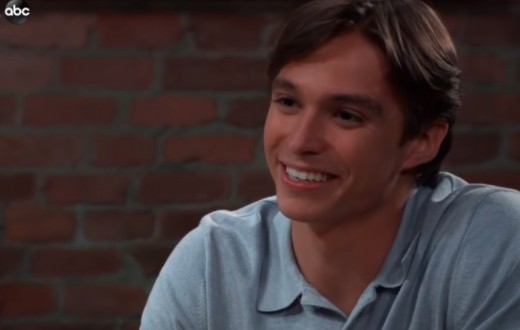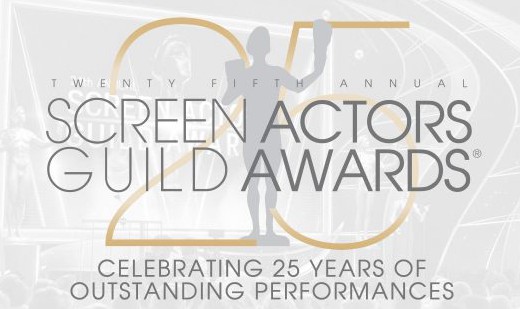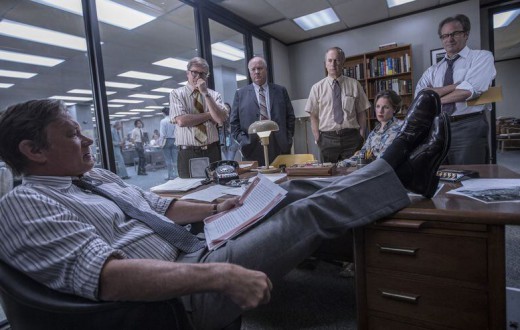There’s nothing like that feeling when you walk out of an audition feeling great, knowing in your bones that you killed it. You remembered the lines, you were funny and charming with the casting team, they laughed at your stupid jokes, and you could sense them really paying attention when you read.
That phone call asking you to come to the callback is as good as yours.
Then…nothing. You check your phone but it’s nothing but crickets and tumbleweeds rolling by. You get ghosted like a bad Tinder date. What gives?
OF course there are a number of reasons we don’t get a callback; the casting process is one of The Great Mysteries of the Universe, and it relies on so many subjective factors that it’s impossible to categorize it, or break it down into a simple, consistent formula. Every casting director is different, every project is different, and every audition is different. Accepting that this is a business with a LOT of “no” and only a very little “yes” is vital to maintaining your motivation as well as your sanity.
But that sense when you know you were on top of your game at the first audition and STILL you don’t even get the callback? That always stings a little. So let’s look at some reasons why you might not get the callback, and maybe find some ways to keep it all in perspective.
1. The Match Game
Have you ever seen a community theater play in which the limited talent pool from which the creative team has to cast leads to some weird-looking families? If mom and dad are each 5’7” the likelihood that their son will be 6’4” is pretty low. Seeing weirdly matched up people on stage or in films is jarring, and not just to our conscious mind. When a casting director is at work, they are considering so many other factors besides your talent. So if you have an audition where you were sure you nailed it but don’t hear back, it can sometimes be attributed to you simply not fitting with other actors who have already been cast. It’s not just families either; mixing and matching is a murky science but it also has to do with people who are being considered to play friends, classmates, and co-workers. Anything from accents, to energy level, to physicality can play a role – there are a million little factors that go into making the right choice for each piece of the puzzle for a casting director, and not all of them are readily apparent. So kicking yourself for not getting the callback is silly at best, when you not only have no idea why, but you have no way of knowing what decided it.
2. Ch-ch-ch-changes
Nothing is written in stone in this life. And when it comes to creating a film, play or television show, that’s even more true than in most situations. Often you’ll get new, revised pages the morning of shooting a scene; so naturally the creative team is constantly seeking to revise and improve the piece even during the casting process. That means that the character breakdown you came in to read for may well have been altered in some way and you are no longer the best fit. As casting decisions get made for one character – say if an actor comes in whom they love, but who for whatever reason changes the landscape of the character – it can have ripple effects on the other characters and change what they’re looking for. Again, this is no fault of your own, but you really have no way of knowing this is what might have occurred unless someone goes out of their way to tell you so.
3. Mad Skillz
So that’s two possible reasons for not getting the callback that you really have no control over. Here’s one that does have something to do with you: it’s possible that your skill level isn’t where it needs to be. Self-assessment is one of the hardest things for anyone in any field to undertake, and in acting that holds even more true. As noted above, it’s a notoriously subjective business, and your image of yourself is, just as everyone’s, subjective. This is just one of the myriad of reasons why it’s so very important to constantly be taking classes, participating in actors’ groups, and performing in informal settings like open mic nights and improv nights: so you get outside feedback. As veteran L.A. casting director Billy DaMota says, “You have to understand what your abilities are. If you’re just a beginner, the last thing you want to do is go in front of a casting director or a producer if you’re not ready.” That’s because whatever level you are at, you will make some kind of an impression on the casting team, and you don’t want them to associate your name with “that guy or girl who just isn’t ready,” because you won’t always be at that level, but that is how they will remember you.
4. Inconsistency
Another factor that can sometimes prevent you from being on the list for the final callback is a lack of consistency in your auditions. For instance, you might have just what they think they’re looking for at the initial audition, but something slips away in the second round. This can come in the form of the mix-and-match, when you are reading opposite various other candidates for roles, or even if you’re just auditioning with a reader. It’s important to take stock of what you did the first time around and bring that energy back with you every time you get called in.
5.Too Consistent
On the other hand, it’s important to remember that CDs often want to see some spark of innovation, improvisation, or your unique take on a character. Reading exactly the same way every time, never trying new things or mixing it up at all can be just as deadly as being inconsistent! So how to navigate this treacherous stretch? Remember the bones of what you did, say when you got the first callback: the energy, the objective, things like that. But be prepared on top of those bones to layer on some new colors every time you go back in. Especially be sure you are open to taking notes on adjustments from CDs and directors. Far too many actors get locked in to one read of audition material in the memorization and research process, and it can kill their chances of getting called back for the final round – and getting cast!
Bonus: 6. Confidence
Confidence has got to be the single most important factor outside of ability to the casting process, and it’s important to be aware of how you project it. These projects that we’re auditioning for are often much more than mere jobs to the people working on them. It can take years of work to get some projects off the ground. So when a creative team that has poured their valuable time and resources both worldly and emotional into a project, they’re looking for team members who emanate an aura that says they know what they’re doing. You can be the most talented person to pass through that audition room, but if the image you present is one of nervousness and uncertainty, you will make the casting team uncertain about trusting you with their baby. Cultivate an attitude that, while not arrogant, is calmly self-assured in the knowledge that you have done your homework and you are a beautiful artist with your own quirks and contributions to offer, someone who can be relied on to help other artists create something beautiful! Bring that with you into the room every time, and you will find yourself at more and more callbacks!


